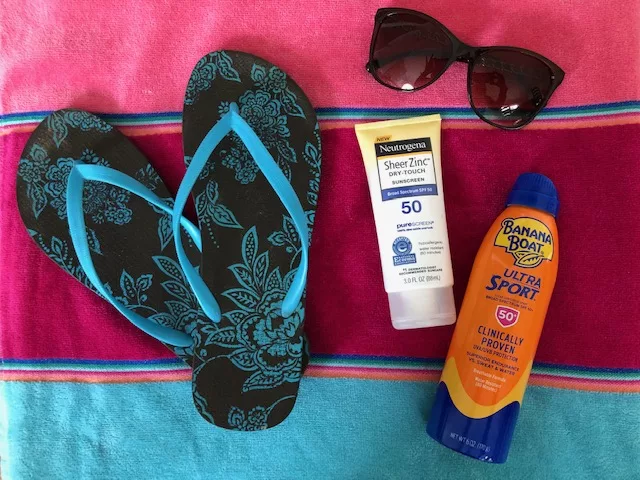
Summer is here, along with beach days, afternoons at the neighborhood pool, tropical vacations, and lathering up in sunscreen. As you head out into the summer sun, however, it might be worth doing some research before grabbing any old bottle of sunscreen off the shelf. A new report has found benzene, a chemical that is known to cause cancer, in 78 sunscreen and after-sun products.
Independent Testing Found Benzene in 27% of Sunscreens
Valisure, a pharmacy that performs its own independent tests on various products, recently tested almost 300 different sunscreens in an effort to find a “clean” sunscreen. Of those 300 sunscreens, 78 (or 27%) tested positive for benzene; some even containing triple the FDA’s limit of 2 parts per million. As a result, Valisure is asking for a recall of the contaminated batches.
It is believed that the benzene contamination is due to a manufacturing issue since benzene is not naturally in sunscreen. The fact that the levels of benzene in the sunscreens varied from batch to batch within the same brand also points to a manufacturing defect. Regardless of why the benzene is present in the sunscreen, it’s best to find out which sunscreens are contaminated, and steer clear of those until this issue is resolved.
The Health Dangers of Benzene
Benzene is a volatile organic compound that is primarily used in manufacturing or to make other chemicals. According to the World Health Organization, the U.S. Centers for Disease Control and Prevention, and the U.S. Department of Health and Human Services, benzene is a known human carcinogen, meaning that it causes cancer. Studies have linked the following cancers to benzene exposure:
Exposure to benzene is linked to other health issues besides cancer, including these common health problems:
Benzene may also affect the reproductive system, but this is yet to be proven. Studies have shown disturbances in menstrual cycles and even impairment of fertility in women.
Symptoms of benzene exposure include skin irritation, eye irritation, headaches, and lightheadedness. For more information on benzene, click here to read our blog on the chemical.
Which Sunscreens Should I Avoid, and Which Ones Should I Buy?
It is important to remember that not every sunscreen brand is contaminated with benzene, and sunscreen is still recommended for protection against harmful solar radiation. However, before you slather on the sunscreen, you should check out the links below to ensure the sunscreen you are using is not contaminated with benzene. The list of contaminated sunscreens includes the popular brands below.
For a complete list of contaminated and benzene-free sunscreens click on the links below. Page 12 on this link contains the list of all the sunscreens that contain benzene.
The FDA and sunscreen manufacturers are being urged to further investigate this issue and take action, but until that happens, it’s up to you to keep your family safe. We do not advise you to stop using sunscreen due to this discovery, since sunscreens help reduce the risk of skin cancer. We do advise you to be careful about what sunscreen you buy and use for your family. With a little effort, you can be sure that the sunscreen you are using doesn’t contain benzene before hitting the beach this summer.
The Collins Law Firm is an experienced and highly regarded environmental law firm fighting for clean air, water, and products for everyone. Call us at (630)527-1595 or fill out our contact form if you or your family has been affected by toxic contamination.

"*" indicates required fields